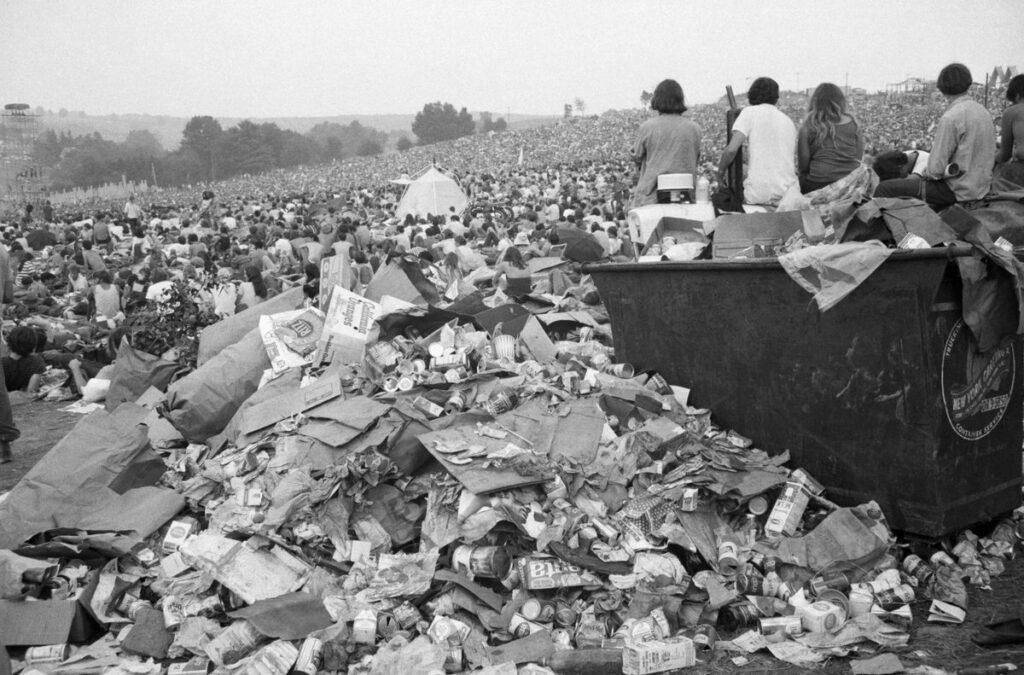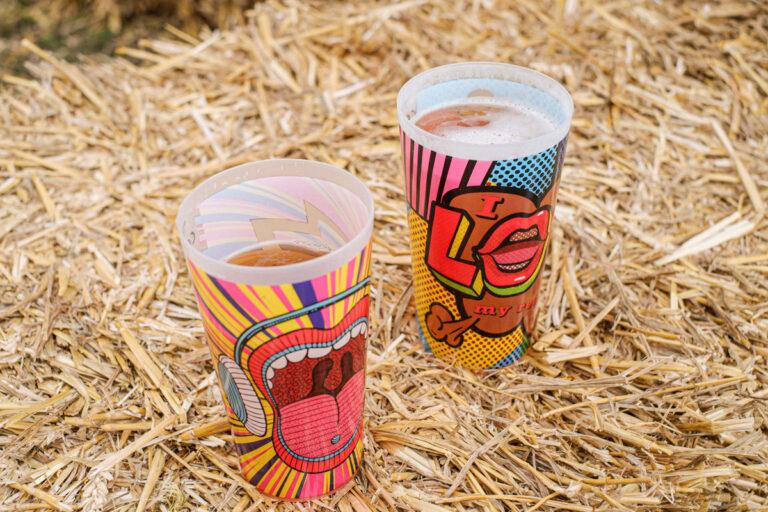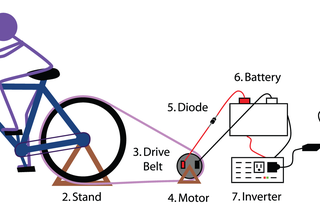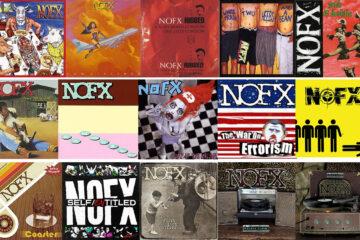Music festivals are great, and I feel that’s because they are basically anarchy.
Thousands of people turn up and live essentially in a commune for a week or so and, by and large, it all goes well and everyone get on great, even if they have very different styles and backgrounds.

However, anarchy means that people can do that they want, and often what people want to do is… litter.
The end of a festival is like the aftermath of a huge natural disaster: rubbish everywhere, food and drink strewn about the place and tents that are either destroyed or just left abandoned.
Even if you look at the original festival, the hippie nirvana of Woodstock – it was an absolute trash heap by the end of the 3 days!
And that’s not the only way in which music festivals are terrible for the environment.
With the power consumption of live music for a week straight, as well as having thousands of people travelling to and from the area; festivals are not very eco-friendly.
However festivals are starting to look into ways to decrease their carbon footprint (though they can always do better).
So below are some examples of how festivals are currently improving; ways they can continue to improve; and what you can do to help.
Current Green Initiatives:
Let’s take Download Festival as an example, as it’s usually my music festival of choice, and they are quite open about their goals for environmental sustainability.

Their ‘charter’ page describes all the positive things that the festival aims to work on, as well as their accolades and successes, which within environmentalism includes:
- 4/5 stars in the Julie’s Bicycle creative green certification
- A now-defunct organisation that encouraged and recognised environmental best practices across the arts and culture industry
- A now-defunct organisation that encouraged and recognised environmental best practices across the arts and culture industry
- Being a part of Vision 2025
- A group promoting outdoor event sustainability
- A group promoting outdoor event sustainability
- Working towards a 50% decrease in greenhouse gas emissions by 2030
- This doesn’t sound like a huge thing, but is in line with the Paris Agreement of keeping global warming below 1.5 degrees
So how is Download festival working towards these goals? What initiatives are they using?
Renewable energy
One of the biggest and arguably easiest ways to be greener is to utilise renewable energy sources.
In 2024 download festival utilised HVO biodiesel. Whilst still diesel, this variant emits 90% less CO2 than white diesel, the typical diesel used in cars.
The festival also has several solar panels around the site, and solar is one of the best renewable energy sources around.
In the book ‘there is no planet B’, Mike Berners-Lee (Yes, brother of the guy who invented the internet) is a huge advocate for them, and essentially argues that there is no reason for most of the earths surface to be covered in solar panels
Now, both of these options are a great start, but what else could Download festival do to reduce it’s carbon footprint?
Other ways festivals could help:
1 – Ban single-use plstics
Plastic has probably been one of the worst things to happen to the world in terms of environmental impact.
And single-use plastics are the worst of the worst. Anything that is designed to be thrown away is a pretty bad things, environmentally-speaking.
A few years ago, Download Festival (as well as almost every other type of large evenr) switched to a deposit system. Pay an extra £1 and get a hard-plastic cup instead. Any time you then buy a new drink, you exchange that cup, it gets washed and re-used, and you get a clean new one.
Whilst good in theory, it does still have some drawbacks.
There are still thousands of these cups being made for each event, and whilst the customer is supposed to hand them back in at the end of the event to get their £1 back, almost no-one ever does.
Meaning anyone who goes to multiple events ends up with cupboards full of these plastic cups that they will eventually still just throw away.
2 – Eco fees
Adding an extra fee to festival goers obviously has a pretty big barrier to overcome immediately: people don’t want to spend any extra money than they have to.
A few years ago there was a suggestion of a ‘tent tax’ at Leeds and Reading festival.
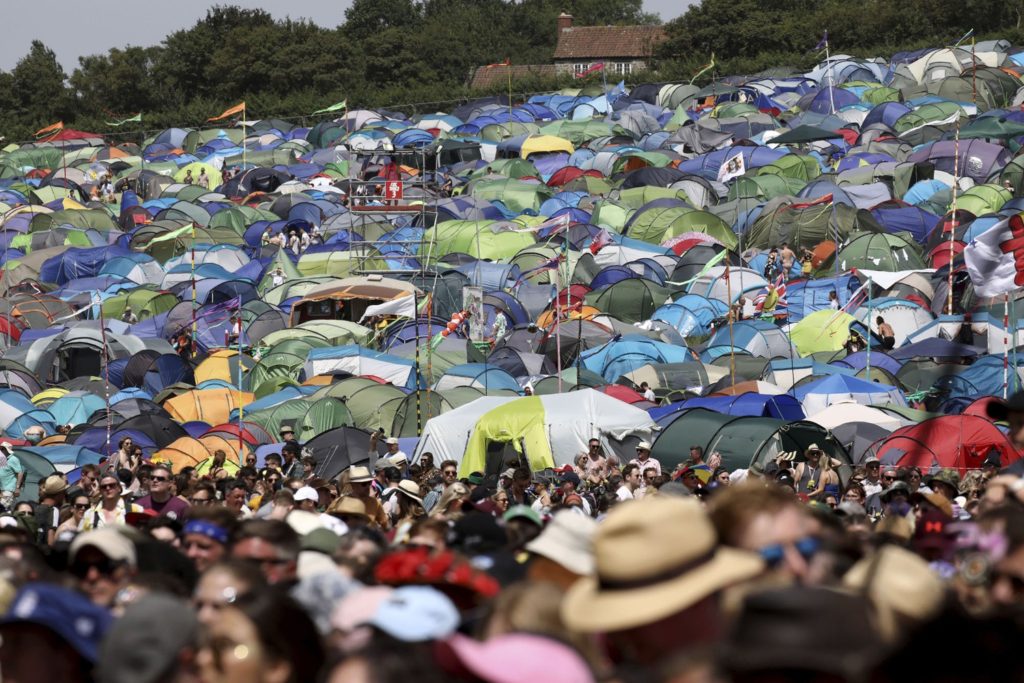
This was a surcharge to attendees when they bought the ticket, and would be returned to them only IF they took their tent home.
As far as I can find, this tax was never actually tried, maybe as it had a lot of unanswered questions:
- How do you prove who did or didn’t take their tent home?
- What if you went with friends and only one of you took a tent? Do you all still pay the tax?
- What exactly would the money go towards?
But maybe this concept could be looked at again, specifically with the fee going to help offset the carbon footprint of the attendee.
3 – Utilise festival goers
Utilise them how? Use their creative thinking and problem-solving abilities?
Nope! Use their raw power!
In 2022 a folk festival in Rhode Island set up a row of bicycles attached to generators and encouraged their attendees to cycle on them and help to generate power for the stage.
The idea was more to encourage a conversation about renewable energy, but the rest of the power to the stage came from solar power, so it’s win-win really!
How can I be more Eco-friendly at music festivals?
1 – Don’t leave your stuff behind
You wake up on the Monday morning, hungover and already sad that you’re heading back tot he real world before the next festival.
You can’t be bothered with anything and you just want to get home and get a cup of tea and a nap.
The last thing you want to do is drag all your stuff back home. Hell, most of it was cheap online stuff anyway.
Why bother taking your pop-up tent home?
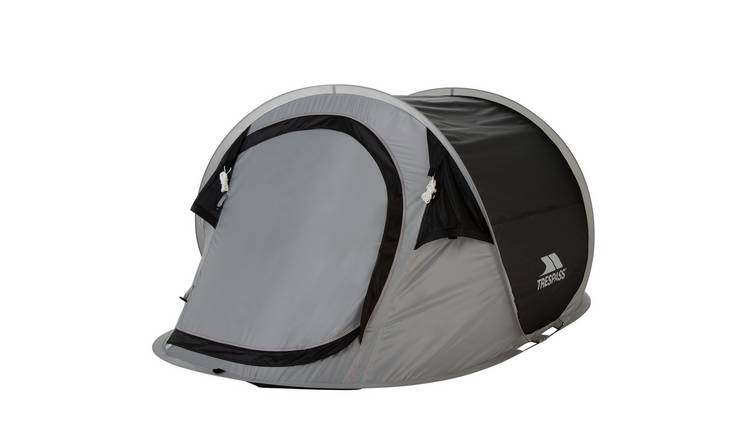
It was only £20 and you’ll just buy a new one next year. Same thing for the chairs and the gazebo.
Well, one of the easiest ways you can be green at festivals is just… not do any of that.
Take your stuff home with you, and re-use it!
Yes, you COULD just buy a new pop-up tent next year, but that’s wasteful and going to cost you a lot over the years.
A pop-up tent costs around £20? Well you could buy an actual 3-man tent for around £80-£100. It will be bigger, roomier and doesn’t take up that much space.
Re-use that across 4 years and you’ve broken even against buying a pop-up tent every year AND you’ve had a much nicer place to sleep in every year at the festival.
Same thing with camping chairs. They’re usually pretty robust and will survive many, MANY years of festivals without breaking.
2 – Recycle
One of the biggest piles of rubbish left at the end of any music festival is, unsurprisingly, beer cans.
These cans are mostly made of aluminium (or aluminium for you Americans) and that is widely recycled. So just making sure that you recycle your empties rather than throwing them in the regular trash is a great way to help.

If you really don’t want to take your tents and camping supplies home, then you can recycle those too.
Many festivals have charities who will collect abandoned tents at the end of festivals and donate them to charities.
3 – Car-Pool and Public Transport
I imagine there’s people who will respond to this with a “Well obviously!” but I’m sure there’s also lots of people who never do this.
Maybe your friends live apart from each other and it’s just easier to each make your own way there, but lets be real: it’s much greener to all go together.
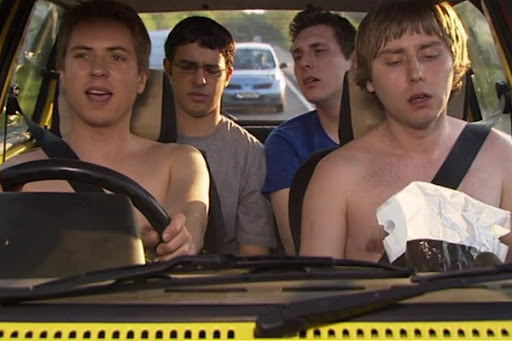
(Though the drive home after the festival may be a bit rough)
Actually, even better would be to all get a coach or train there, but really, just doing whatever you can to reduce the number of cars you’re using will help to save your CO2 usage.
4 – Be vegetarian
If you aren’t vegetarian or vegan, you are probably sick of hearing that you should go vegetarian.
But here’s the thing. If you wan’t to be as eco-friendly as you can: You should go vegetarian.
The production of meat creates a lot of CO2 and is very inefficient in terms of CO2, whilst vegetarian and vegan diets have drastically reduced environmental impact.
And eating vegetarian at festivals isn’t as hard as it once was!
To be fair, everywhere will sell chips, and who really needs more sustenance than that?
But obviously there are several food vans catering to those with different dietary requirements.
For example, in 2024 Download festival, hosted the food van No Fricken Chicken, who sell a range of plant-based chicken-style foods.
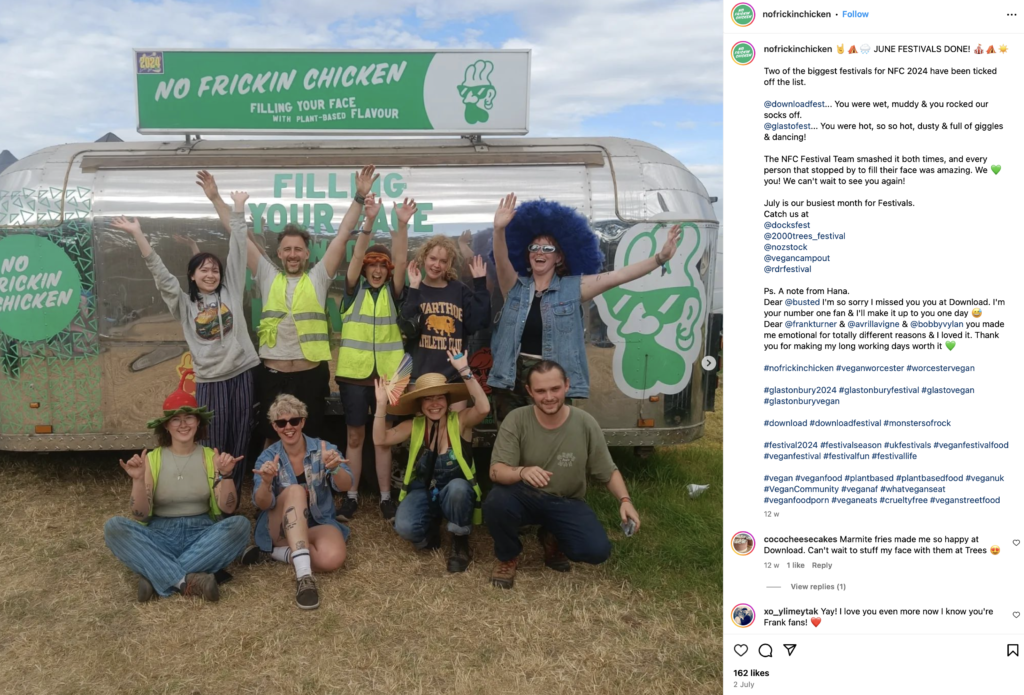
Wrap up
Let me make one thing clear after those last few tips: your individual CO2 output is nothing compared to the large organisations that pollute the earth.
Hell, in the grand scheme of things, any one music festival isn’t a huge issue.
Just 100 companies are responsible for 70% of all CO2 output, and that’s been the case for over 30 years.
However, without change, nothing will get done, and the more that regular people try to become more sustainable and eco-friendly, the more they can push for change higher up in society as well.
I know it’s cliche, but it’s true: be the change you want to see in the world.
